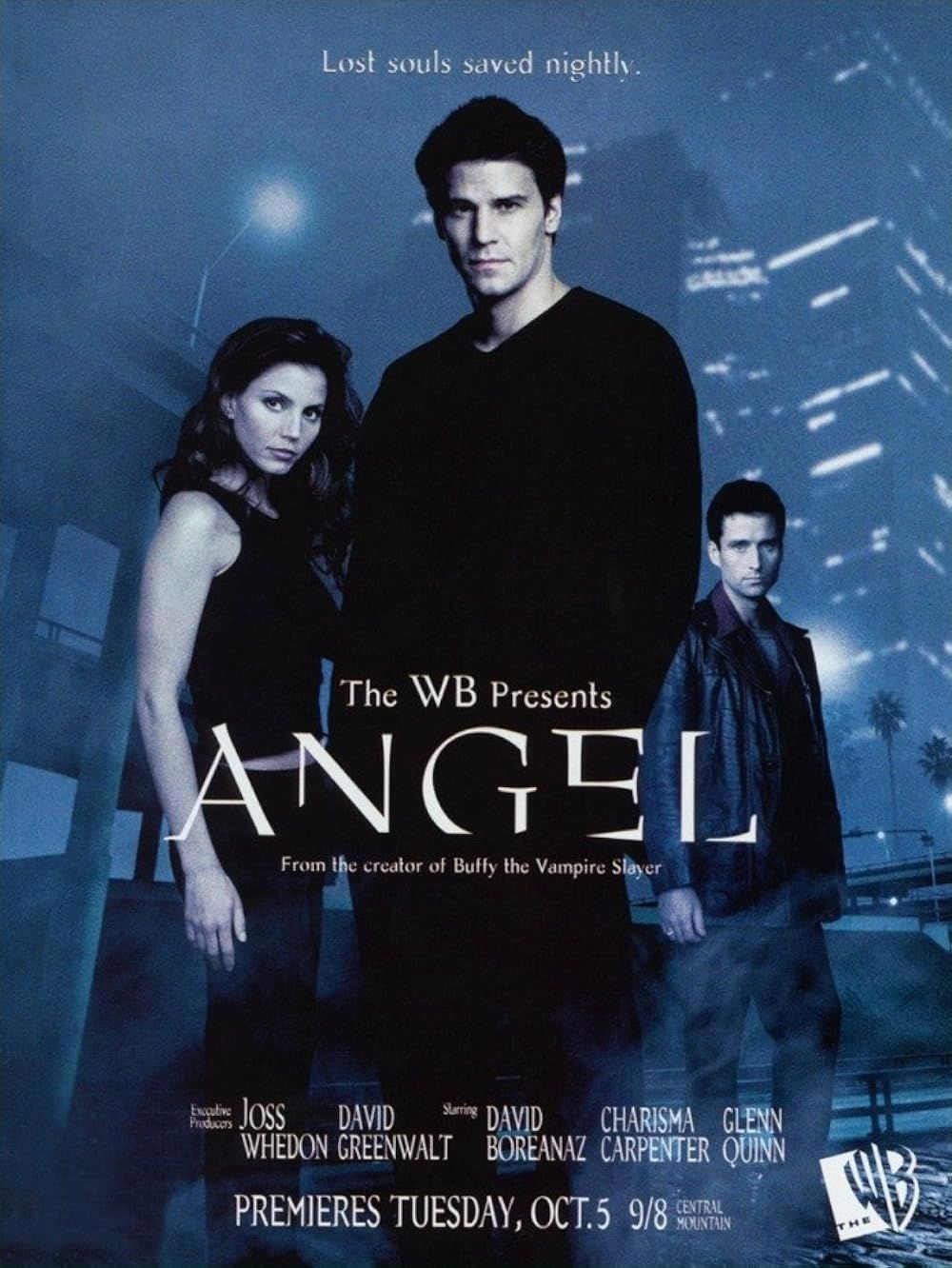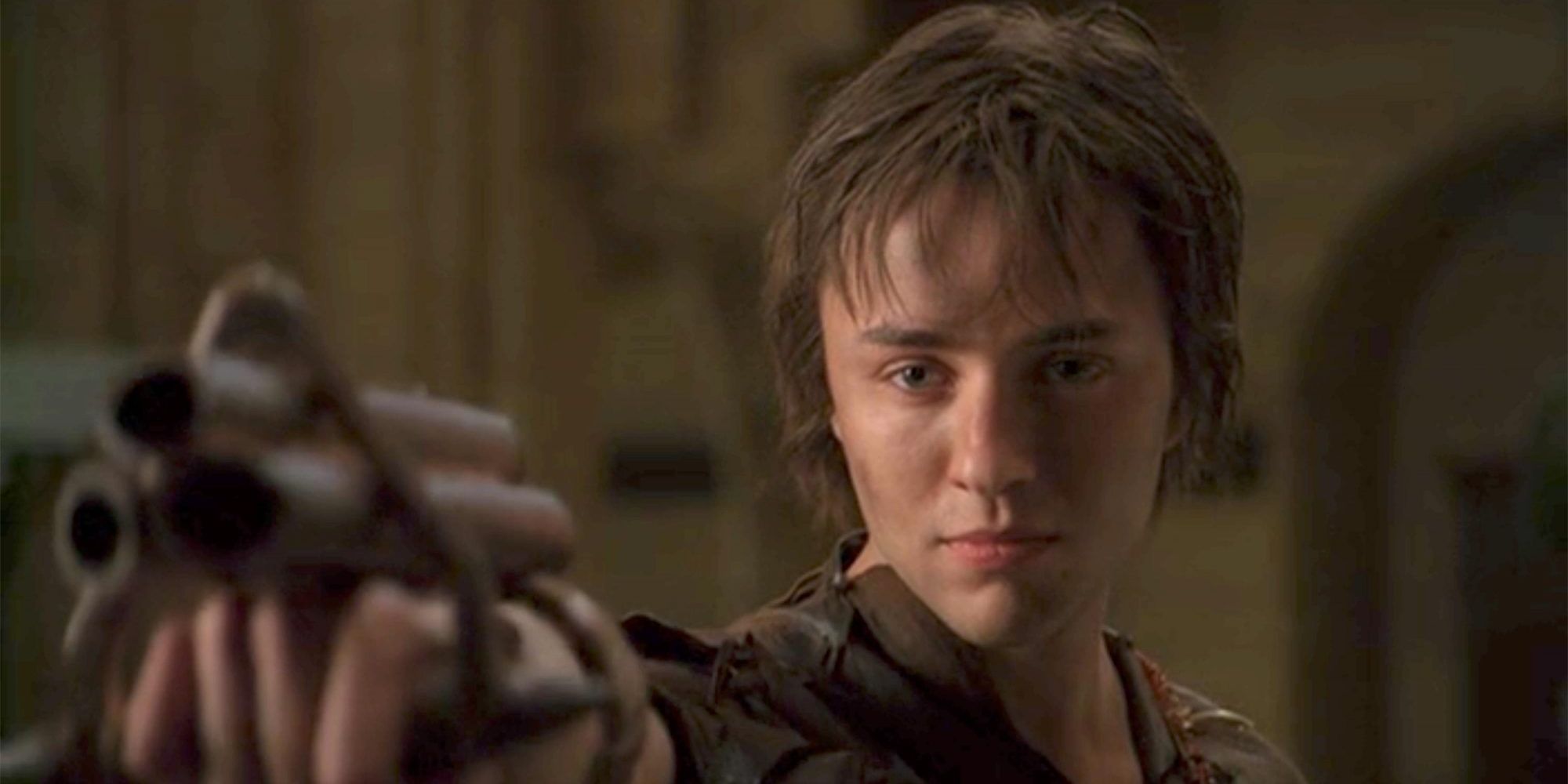The Big Picture
- Angel's existential struggle is highlighted in the groundbreaking episode "Reprise," shifting the tone of the series.
- The prophecy in "Reprise" forces Angel to confront the impossibility of redemption and the bleak reality of his mission.
- "Reprise" shapes Angel's complex character and sets the stage for darker, more nuanced storytelling in later seasons.
Despite the underwhelming 1992 film of the same name, Buffy the Vampire Slayer quickly proved to be one of the smartest and most exciting genre shows in television history. Combining the parameters of a coming-of-age high school narrative with a flesh-out world of demons and vampires, series creator Joss Whedon earned a significant fanbase for the larger “Buffyverse.” The success of Buffy the Vampire Slayer prompted Whedon and his creative team to launch the spinoff Angel, which focused on David Boreanaz’s titular vampire as he searches for redemption in Los Angeles and starts his own detective agency. Early episodes of the series may have felt closer in tone to the “monster of the week” style of Buffy the Vampire Slayer, but Angel turned into a darker and more existentialist drama series with the groundbreaking season two episode “Reprise.”

Angel
- Release Date
- 1999-10-5
- Cast
- David Boreanaz , Charisma Carpenter , Glenn Quinn , Alexis Denisof , J. August Richards , Vincent Kartheiser , James Marsters
- Main Genre
- Supernatural
- Seasons
- 5
- Production Company
- 20th Century Fox Television
- Network
- The WB
Angel Learns the Truth in “Reprise”
One of the primary issues that television spinoff shows face within their initial seasons is setting a unique tone that does not feel like a complete replication of the original property. If Buffy the Vampire Slayer examined heightened teenage emotions and the path from adolescence to adulthood, Angel was a dark neo-noir that examined the impossibility of redemption. Gifted with a soul, Angel became determined to save innocent people from the sinister supernatural forces that lurked beneath the “City of Angels.” However, Angel was also forced to wrestle with the horrific circumstances of his past; no amount of heroism would erase the lives he destroyed when he ravaged the world as a vampire. Many of the strongest crossover episodes between Angel and Buffy the Vampire Slayer chronicled his shocking reign of terror by filling in gaps within history.
Angel took a different direction than Buffy the Vampire Slayer when the titular character formed a detective agency with the former watcher Wesley Windham-Pryce (Alexis Denisof), the Sunnydale high school graduate Cordelia Chase (Charisma Carpenter), the rogue demon hunter Charles Gunn (J. August Richards), and the sensitive demon Lorne (Andy Hallett). Although initially the gang at “Angel Investigations” is approached by various clients that need their help, Angel becomes aware of a critical prophecy in the season one finale, “To Shanshu in L.A.” The prophecy suggests that to prevent hell on Earth, Angel must make a sacrifice. Despite its disturbing implications, Angel believes that becoming a martyr will both save humanity and allow him to complete his redemptive arc.
The prophecy gave Angel a focus to the narrative arc, as Angel helped lead a charge against the evil law firm Wolfram & Hart with the hope of preventing them from leveling humanity. While a centralized threat made each of Angel’s decisions more consequential, the series proved to be much more nuanced in “Reprise.” After breaking into the headquarters of Wolfram & Hart, Angel encounters the Senior Partner Holland Manners (Sam Anderson), who offers him the chance to visit hell itself. Angel realizes that hell exists on Earth in the form of history repeating itself over and over again; he is destined to fight the same battle against evil but will never fully save humanity from itself or atone for his past sins. Angel and his friends are ultimately fighting an unwinnable battle that will only end in their sound defeat.
“Reprise” Changed the Tone of ‘Angel'
The disturbing message of “Reprise” was befitting of a series as dark as Angel and helped further distance it from the more adolescent-friendly style of Buffy the Vampire Slayer. While each season of Buffy the Vampire Slayer featured a signature “Big Bad” that Buffy (Sarah Michelle Gellar) and her allies had to defeat, Angel showed that heroism is more complex than simply defeating an evil villain. Angel’s mission wasn’t a singular quest as much as it was a grueling everyday existence. “Reprise” suggested that avoiding even more devastating events would have to be a reward in its own right, as Angel would never be celebrated for his work and achievements.
Despite his self-professed desire to atone for his past, the events of “Reprise” send Angel in a downward spiral that makes him a more complicated character. Faced with the unbearable burden that humanity can never be saved, Angel chooses to reunite with the vampire Darla (Julie Benz), the vampire who had initially bitten him. While it’s a passing moment of instability that he eventually recovers from, Angel’s sexual relationship with Darla allows for the birth of their son, Connor. The return of a teenage Connor (Vincent Kartheiser) who seeks vengeance on his father for abandoning him would become a dominant storyline in Angel’s third season.
“Reprise” Established the Existentialism of ‘Angel'
Boreanaz gives one of his most emotional performances ever as the character, but “Reprise” was a great showcase for Angel’s supporting cast. When faced with the unfortunate reality that their boss may no longer be trusted, Angel’s allies Wesley, Cordelia, Lorne, and Gunn begin to develop an independent endeavor to fight evil; considering they are not gifted with any supernatural powers, this act of heroism is perhaps even more inspiring. The episode also marked a grim conclusion to the storyline involving Kate Lockley (Elisabeth Röhm), a Los Angeles Police Department officer who had become Angel’s ally in some earlier episodes. Kate’s abrupt dismissal by the LAPD for her erratic behavior and depression signified that Angel wasn’t going to end on a satisfying note for all of its characters.
While the series still retained its cheeky sense of humor and joyous worldbuilding, the establishment of a realistic approach to good and evil in “Reprise” allowed Angel to grow more existential in later seasons. Angel’s transformation into the malevolent “Angelus” in the fourth season and the show’s ambiguous series finale “Not Fade Away” would not have been successful had “Reprise” not set the tone for Angel’s new direction.
Angel is streaming on Hulu in the U.S.

